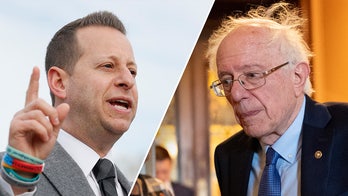On Friday, the Labor Department reported that the unemployment rate held steady at 9.5% for the month of July. The report also showed that 6.6 million people, or 45% of those without jobs, have been out of work for more than six months.
In July, President Obama signed the extension of unemployment benefits to help those struggling to find a job. Under the extension, unemployed Americans can receive up to 99 weeks of income assistance.
The president said in a statement, "Americans who are fighting to find a good job and support their families will finally get the support they need to get back on their feet during these tough economic times."
Jeffrey Miron, Director of Undergraduate Studies in the Department of Economics at Harvard University says not every unemployed American would jump at the first job that comes along.
On Saturday, Miron told Fox News that when faced with a job that is less than desirable, "there are people who choose to continue unemployment for extra weeks or months to collect unemployment insurance for a little bit longer."
Miron also rejects the argument that unemployment insurance puts money in the hands of the jobless, causing them to spend money and stimulate the economy. "That money came from the taxpayers, so others in the economy have less money to spend now or in the future," he said.
The Harvard Economist has a message for those who want to defend extended unemployment benefits: rather than the claim that the insurance stimulates the economy, use an argument for compassion instead.
Still, Miron says, "At what point do we say we have to put aside compassion and worry about efficiency and worry about giving people stronger incentive to go back to work, even if it's not the job they'd most prefer?"




